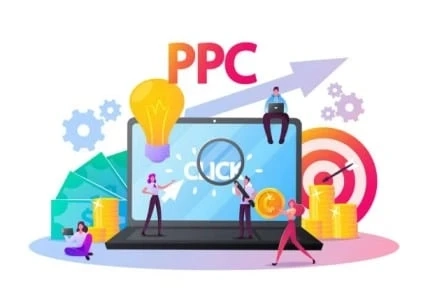In the ever-evolving landscape of digital marketing, Pay-Per-Click (PPC) advertising stands out as a powerful tool. This article is your comprehensive guide to understanding what PPC is and how it works. We\'ll delve into the intricate mechanisms, strategies, and benefits of PPC, aiming to provide you with valuable insights to excel in the digital marketing world.
Defining PPC: Unravelling the Basics
Pay-Per-Click (PPC), often referred to as Cost-Per-Click (CPC), is an internet advertising model where advertisers pay a fee each time one of their ads is clicked. It\'s a potent method to drive traffic to websites, as advertisers bid on keywords related to their business, and when users search for those terms, their ads may appear. Here\'s a closer look at how this system functions:
The PPC Auction Process
- Keyword Research: Advertisers identify the keywords that best represent their business and target audience. These keywords are essential for determining when their ads will be displayed.
- Bid Strategy: Advertisers set a bid amount for each keyword, signifying the maximum amount they\'re willing to pay when a user clicks on their ad.
- Quality Score: Search engines like Google assess the relevance and quality of ads. A higher Quality Score can reduce the cost per click and improve ad rankings.
- Ad Placement: During a user\'s search, the search engine runs an auction, considering both the bid amount and the Quality Score. The ad with the highest Ad Rank typically wins the top spot.
- Ad Display: When a user\'s search matches the chosen keywords, the winning ad is displayed prominently on the search results page, attracting potential customers.
Benefits of PPC Advertising
- Immediate Visibility: Unlike organic search methods, PPC delivers instant results. Your ad can be seen by potential customers as soon as your campaign is live.
- Control and Flexibility: Advertisers have full control over their budget, allowing them to adjust it at any time. This adaptability makes PPC a versatile marketing tool.
- Targeted Advertising: PPC allows for precise targeting based on factors like location, device, and even the time of day.
- Measurable Results: With PPC, you can track every aspect of your campaign, from the number of clicks to conversions, enabling you to make data-driven decisions.
PPC Campaign Strategies: Maximizing Success
To outrank competitors in the world of PPC advertising, it\'s vital to implement strategic and effective tactics. Here are some key strategies:
- Keyword Optimization
Keyword research is the foundation of a successful PPC campaign. Focus on long-tail keywords that are specific to your business, as they often have less competition and can yield higher conversion rates.
- Ad Copy Perfection
Craft compelling ad copy that not only includes your chosen keywords but also resonates with your target audience. A captivating ad copy can significantly improve click-through rates.
- Landing Page Excellence
Ensure that the landing page linked to your ad is optimized for conversions. It should be relevant, user-friendly, and offer a seamless experience.
- Ad Extensions
Utilize ad extensions to provide additional information to potential customers. This can include site links, callout extensions, and structured snippets, enhancing your ad\'s appeal.
Measuring Success: Key Performance Indicators (KPIs)
In the world of PPC advertising, tracking performance is crucial. Here are some KPIs to monitor:
- Click-Through Rate (CTR)
CTR indicates the percentage of people who clicked on your ad after seeing it. A higher CTR usually means a well-crafted ad.
- Conversion Rate
The conversion rate represents the percentage of users who took the desired action after clicking on your ad. This could be a purchase, sign-up, or any other predefined goal.
- Quality Score
The Quality Score provided by search engines directly affects your ad\'s cost and positioning. A high-quality score can reduce your expenses and improve your ad\'s visibility.
The Future of PPC: Staying Ahead
In the ever-evolving digital marketing landscape, staying ahead in the world of PPC advertising requires constant adaptation. Here are some trends to watch:
- Artificial Intelligence (AI)
AI and machine learning are increasingly being used in PPC campaigns to optimize bids, enhance ad targeting, and improve ad copy.
- Voice Search
With the rise of voice-activated devices, optimizing your PPC campaigns for voice search is becoming more important. Natural language keywords are key in this arena.
- Video Advertising
Video advertising on platforms like YouTube and social media is growing rapidly. Consider incorporating video into your PPC strategy for added engagement.
In conclusion, PPC services help you to boost your online visibility and attract potential customers. By understanding the fundamentals, implementing strategic techniques, and monitoring key performance indicators, you can harness the full potential of PPC advertising and outshine your competitors.



